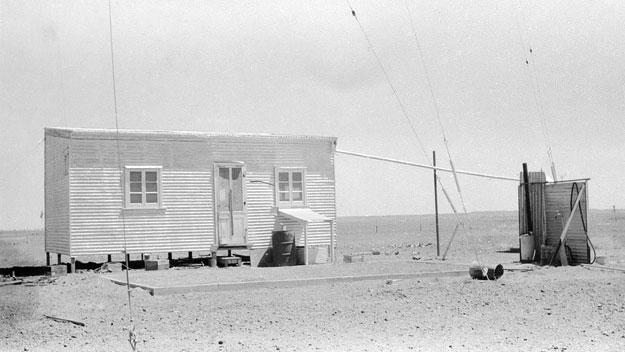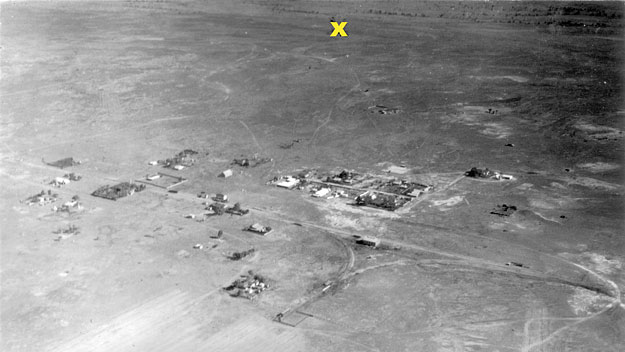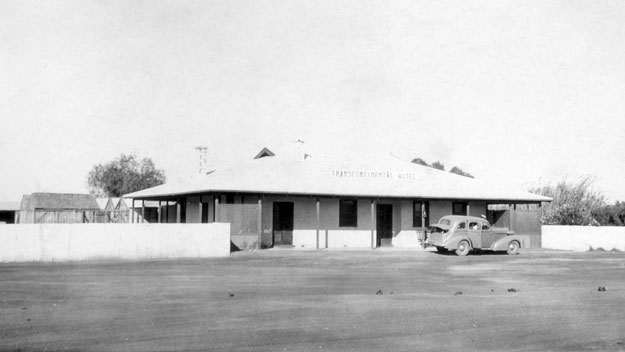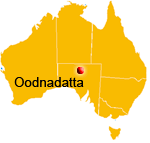
The Aeradio Station at Oodnadatta was part of the rapid expansion period of late 1938 into 1939. During this period, DCA established new Aeradio Stations using whatever buildings and equipment could be obtained at short notice, as opposed to the original network of purpose-built Stations. Many of these new Stations were established through Australia's remote and arid centre in support of Guinea Airways' Lockheed service between Adelaide and Darwin.
The photo above shows the ramshackle Station building at Oodnadatta. The guy wires belong to the HF radio receiver masts, themselves out of shot. Aeradio Operator Charlie Hyatt wrote on the back of this photo: "Home was never like this! Note the sunken bath, hot & cold etc. in the bathroom on the right. The shack is made entirely of galvanised iron, all the wires you can see belong to the various masts and so on nearby. The black thing in the bathroom is the shower - put one end on the tap, hook the other over the top of the tin wall. Needless to say, I don't use it. They are supposed to be building us a new place soon."
Below, Guinea Airways Lockheed L-14-H Super Electra VH-ABI Koranga refuels from drums at Oodnadatta. This aircraft had a short life, being bought new by Guineas for the Adelaide-Darwin service and entering service in July 1938. On 18 January 1939 the southbound aircraft crashed on takeoff from Katherine, N.T., killing all three crew and the only passenger, Alan McDonald, DCA's Chief Aerodrome Inspector for the Northern Territory.

Below: In 1939 Oodnadatta was a tiny and isolated outpost in the South Australian outback, as this aerial view of the town shows. The aerodrome is marked with a yellow 'X'.

Below: The Transcontinental Hotel was Oodnadatta's top accommodation for travellers.

(Photos: Top-CAHS/Charlie Hyatt, rest-CAHS/Ivan Hodder collection)
Back to the main Air Traffic Services index
If this page appears without a menu bar at top and left, click here
